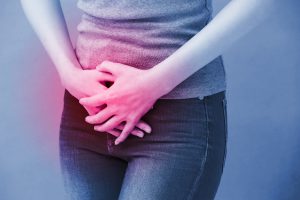 Osteoporosis is a disease that weakens the bones, making them more susceptible to breaking. Approximately 10 million Americans have osteoporosis and another 44 million have an increased risk, due to poor bone density. In fact, one in two women and one in four men will break a bone due to osteoporosis in their lifetime.
Osteoporosis is a disease that weakens the bones, making them more susceptible to breaking. Approximately 10 million Americans have osteoporosis and another 44 million have an increased risk, due to poor bone density. In fact, one in two women and one in four men will break a bone due to osteoporosis in their lifetime.
There are a number of factors that can increase the likelihood that you’ll develop osteoporosis – some are controllable, but others are not. Some of the factors are:
• Gender – Women are much more likely to develop osteoporosis than men.
• Age – The older you get, the greater your risk of osteoporosis.
• Race – You’re at the greatest risk of osteoporosis if you’re white or of Asian descent.
• Family history – Having a parent or sibling with osteoporosis puts you at greater risk.
• Body frame size – Men and women who have small body frames tend to have a higher risk because they may have less bone mass to draw from as they age.
• Hormone levels – Osteoporosis is more common in people who have too much or too little of certain hormones in their bodies.
• Dietary factors – Those with a lower calcium intake or have a history of eating disorders are at an increased risk
• Medications – Long-term use of oral or injectable steroids can interfere with the bone rebuilding process
• Lifestyle – Excessive alcohol consumption and tobacco use can contribute to the weakening of bones.
According to the National Osteoporosis Foundation (NOF), the keys to combatting osteoporosis are diet, exercise, and lifestyle. Recommendations include:
- Get plenty of calcium and vitamin D in your diet
- Quit smoking and limit alcohol consumption
- Participate in weight-bearing and muscle strengthening exercises on a regular basis
A bone density test can be performed to measure the proportion of mineral in your bones. During this painless test, you lie on a padded table as a scanner passes over your body. In most cases, only a few bones are checked — usually in the hip, wrist and spine.
Hormone therapy or medications can be administered to treat osteoporosis, but there are side effects. Please consult your doctor. If you do not have a doctor, Jamaica Hospital has qualified physicians at our Ambulatory Care Center. To make an appointment, please call 718-206-7001.
All content of this newsletter is intended for general information purposes only and is not intended or implied to be a substitute for professional medical advice, diagnosis or treatment. Please consult a medical professional before adopting any of the suggestions on this page. You must never disregard professional medical advice or delay seeking medical treatment based upon any content of this newsletter. PROMPTLY CONSULT YOUR PHYSICIAN OR CALL 911 IF YOU BELIEVE YOU HAVE A MEDICAL EMERGENCY.








